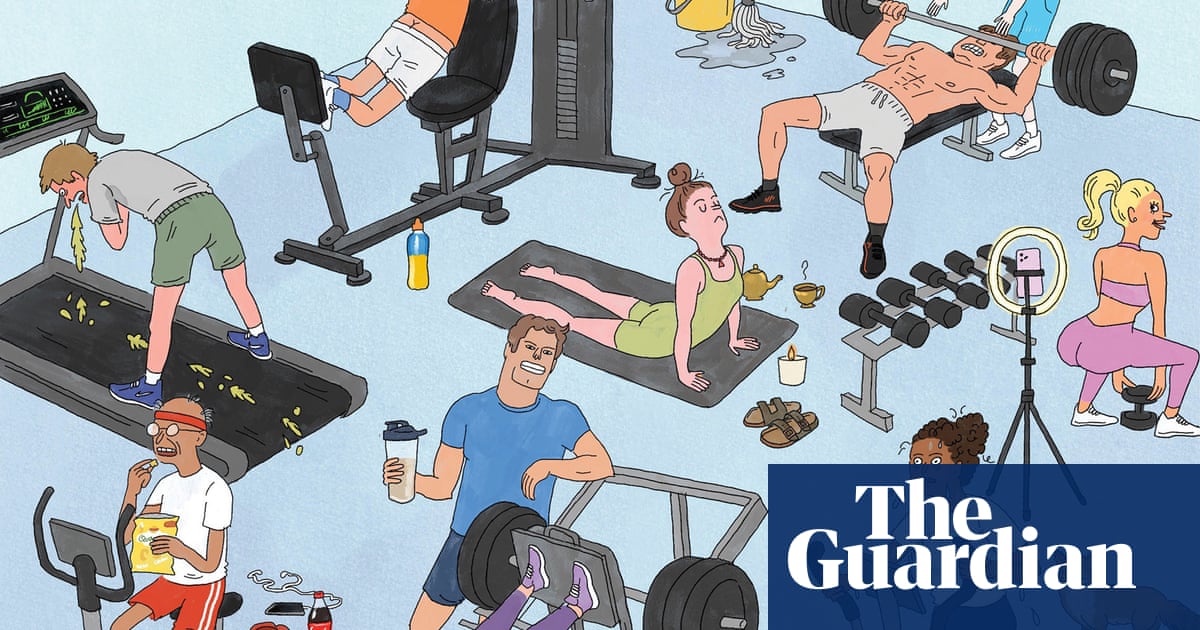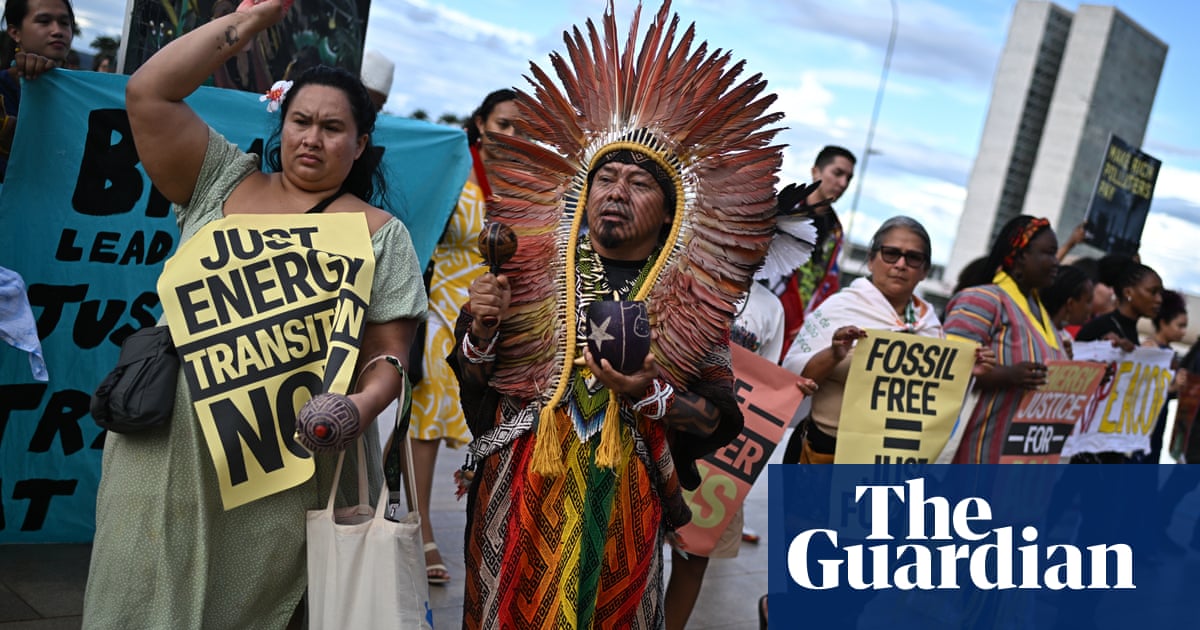Rodrigo Nunes, a senior lecturer in political theory, explains how delivery drivers are taking to the street to demand better pay and conditions, while worker-owned delivery app services are thriving

On 1 April, Brazilian couriers organised a day of action in which thousands of workers engaged in pickets and protests in at least 60 cities, with places such as São Paulo reporting a sharp drop in deliveries. While companies are yet to respond to the demands for better pay and conditions, the mobilisation was a clear step-up for a process of national organisation that began in 2020.
Between 2016 and 2021, the number of people working for delivery apps in Brazil rose by 979.8%, with the number of delivery and passenger drivers in the sector now around 1.4 million. This boom coincides with the period in which the country finally felt the effects of the post-2008 recession. Economic decline, corruption and the impeachment of the then president, Dilma Rousseff, ended 13 years of successful left-leaning governments by the Workers’ party (PT). In the years that followed, a series of austerity measures and labour reforms were put in place, the political spectrum moved steadily to the right and the far-right libertarian politician Jair Bolsonaro was elected president in 2018.
This sequence of events, and the new reality introduced by platform work, added to Brazil’s long-established tradition of informal, precarious labour – a legacy of slavery that, as sociologist Francisco de Oliveira remarked in the early 1970s, is not so much an archaic leftover as an enabling condition for a highly unequal form of capitalist modernisation. Since the 1980s, thinkers in Brazil and abroad have spoken of the growing casualisation produced by neoliberalism as part of the ongoing “Brazilianisation of the world”.
The loss of protections and rights did not, however, translate into more support for unions and leftwing parties. On the contrary, it was among the newly emerged mass of platform workers that Bolsonaro found some of his staunchest supporters. In part, this was because many blamed the crisis that led them to this kind of work on the PT. But this phenomenon, which can also be observed in Argentina with Javier Milei and elsewhere, has deeper roots.
It is a long-term effect of how several decades of neoliberal domination over policy and discourse have impacted the ways in which people relate to themselves and one another. This can be described as an internalised “neoliberalism from below”, in which seeing oneself as an entrepreneur – rather than a worker, or someone who is exploited or poor – is instrumental to navigating a world in which the individual bears all risks, and for sustaining self-esteem in the face of hardship and overwork. Government regulation, from taxes to obligations put on bosses to even traffic laws, appears from this perspective as a hindrance to economic activity. Losing a car, motorbike or phone becomes an existential threat, justifying heavy policing or even carrying a weapon.
All this makes the far right’s authoritarian, pro-entrepreneur, anti-organised labour message potentially appealing even to those working in the worst possible settings. Nowhere was this clearer than in the way this cohort responded to Covid: whereas Bolsonaro’s opposition to sanitary measures boosted his popularity, the extra-careful approach taken by Argentina’s Alberto Fernández made precarious workers more open to Milei’s hardline laissez-fairism.
Although Luiz Inácio Lula da Silva defeated Bolsonaro to return for a third term in 2022, this tide is still far from its ebb. Even worse, stubborn inflation and a lacklustre performance mean Lula has been losing ground among the country’s poorest for the first time in two decades, losing 20% approval in two months among those earning less than two minimum wages.

Maybe the attitudes of gig workers are not as generalised as they are often thought to be. A 2024 survey shows that 67% of self-employed workers in Brazil would prefer a formal contract, with the number going up to 75.6% among those earning the minimum wage or less. But it is not far-fetched to see the cyclists and motoboys (motorbike couriers) who snake their way through congested traffic as the bellwether of a broader social shift towards a more individualistic, cynical outlook. Nurtured by online coaches and the prosperity gospel of evangelical churches, it is one that is distrustful of collective solutions, and which accepts the struggle for survival as a natural fact to be gamed, not questioned.
More from this series
Loading...
All of this means that, even when they organise, couriers’ politics can be ambiguous. It demands better conditions, but rejects the loss of autonomy associated with regular jobs; it slips between seeing couriers as a class and as a collection of individuals. High turnover and little collective identity mean few people stay long enough in the frontline for organisation and experience to flourish. And yet, precisely because they are so numerous and paradigmatic of the way the economy is moving – not just in Brazil, but in any country in which casualisation and platform work is thriving – finding ways to reach them is a key challenge for the left.
While Brazil’s first one-day, decentralised national strikes by delivery drivers in 2020 suggested a more readily recognisable form of class politics – with the brief emergence of the group Antifascist Couriers (Entregadores Antifascistas) and its leader, Paulo Galo – reality has since remained obstinately hard to read. But there are interesting experiments afoot in organising workers more fairly, and away from the call of the far right.
While several of the platform cooperatives that sprung up in the wake of the 2020 mobilisations did not last, some attempts at creating worker-owned, worker-managed delivery services, some of them with their own apps and control over data, have thrived. Among these are Liga Coop, a 2,700-member-strong federation of ride-hailing cooperatives in three states, and Señoritas Courier, a bike courier service by cis women and trans people that has existed in São Paulo since 2017. Outside the circulation sector, Hire Those Who Struggle is a chatbot created by the Homeless Workers’ Movement (MTST) to connect people looking for services from building to education to activists who provide them.
In last year’s municipal elections, the scramble for a place in the final round of São Paulo’s mayoral contest between MTST’s Guilherme Boulos, who promised rest stops for couriers where they could access basic services, and internet coach Pablo Marçal, who sells the entrepreneurial dream that lures gig workers and beyond, provided a good picture of the fight over the urban precariat. Boulos beat Marçal, but lost the head-to-head vote against the Bolsonaro-supported incumbent. The hope story, however, came from the success of Life Beyond Work, which began as an online campaign against the six-day week common in the service sector, and has since collected almost 3m signatures in support of a bill to limit the working week to 36 hours, finally presented in February of this year. The 30-year-old Rick Azevedo, who founded the movement while working in retail, with a TikTok video that made him into a viral sensation, was the left’s most-voted-for city counsellor in Rio de Janeiro.
While having all the potential pitfalls of internet-based initiatives, the campaign felt like the first time in ages in which the politics of work was back on the agenda, and it was neither neoliberal reformers nor the far right – which struggled to find a position that did not come across as anti-worker – on the front foot. What is more, it thrived on social media, a terrain that since Bolsonaro has mostly served the right. This not only proves that there is much to be gained if the left is willing to go on the offensive, but will no doubt leave important lessons as to how that can be done.
-
Rodrigo Nunes is a senior lecturer at the University of Essex and author of Neither Vertical Nor Horizontal: A Theory of Political Organisation

.png) 8 hours ago
7
8 hours ago
7













































